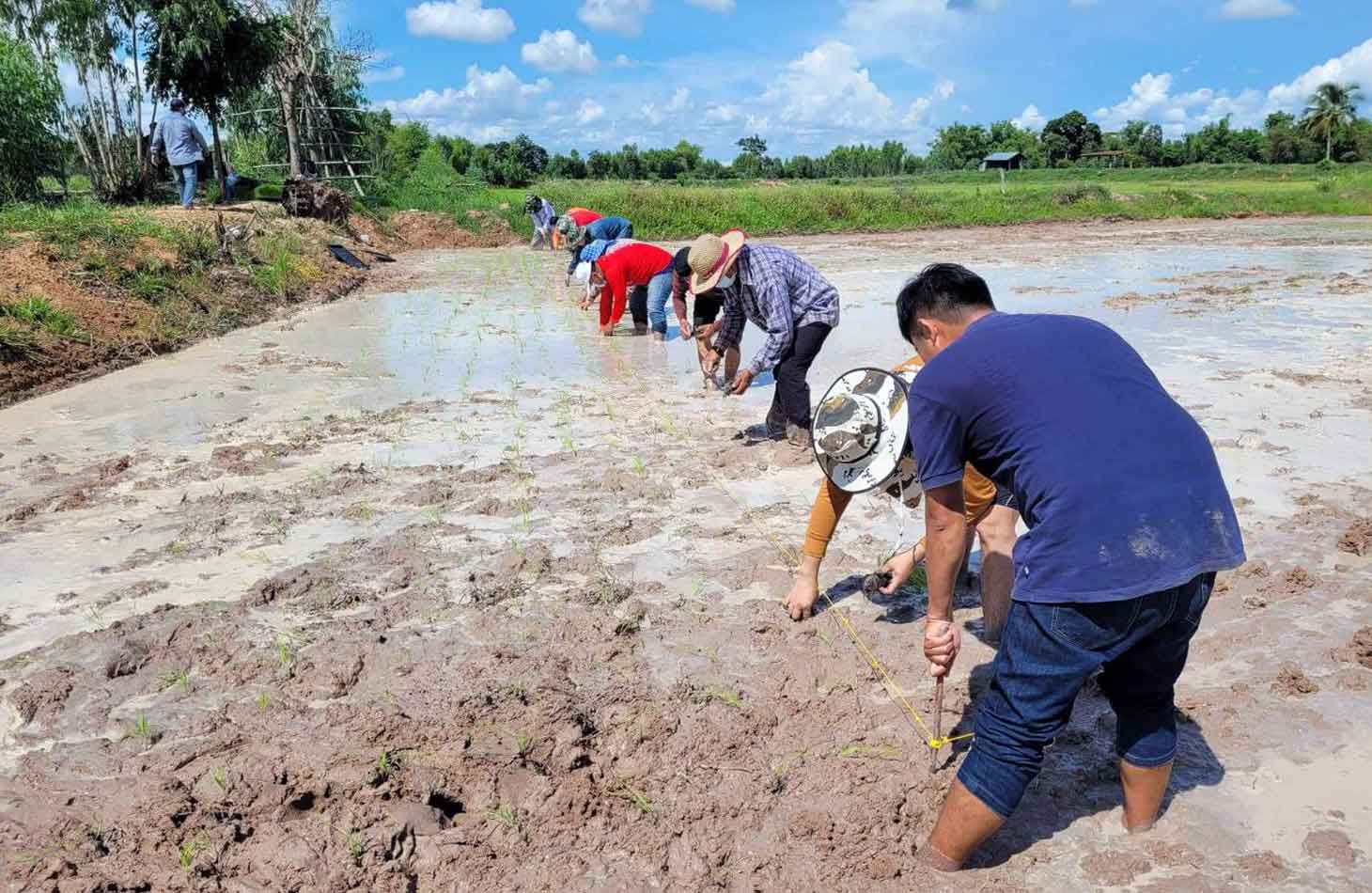Climate-Friendly Rice Production in Thailand

Project type: Land Use and Forestry
Project location: Province Sakon Nakhon, Thailand
Project status: Planned
Annual emission reduction of the whole project: 80,000 (total over 10 years)
Rice cultivation causes large quantities of greenhouse gases. Migros is now supporting an innovative method of growing climate-friendly rice in Thailand. The climate-smart rice cultivation method uses less water and emits less climate-damaging methane gas. At the same time, higher crop yields improve farmers' resilience.
Rice is a staple food for more than three billion people and is responsible for emitting eleven percent of global methane emissions and consuming 40 percent of the world's irrigation water. One kilogram of rice consumes 2000 liters of water. Due to climate change, the Food and Agriculture Organization of the United Nations (FAO) predicts a 15 percent drop in yields by 2050 and is therefore promoting climate smart agriculture.
In the eastern Thai province of Sakon Nakhon, Migros is supporting an innovative technique for growing climate-friendly rice. The so-called system of rice intensification (SRI) is based on alternating irrigation and drying of the soil, which reduces the amount of methane that escapes into the atmosphere.
With this project, we are now also using a more climate-friendly method for traditional rice cultivation. This can save on greenhouse gas emissions as well as water and pesticides.
More than 1000 farming families are to be trained in this new cultivation method. Demonstration fields will be used to show them the effectiveness and economic efficiency of the new cultivation method. In addition, the project will provide participating farm families with equipment to facilitate and safeguard the implementation of the method. Nevertheless, participating in the project is a courageous step for the farmers, especially when the family's livelihood depends on the harvest. However, their commitment not only pays off for the environment, but also brings other benefits.
The new cultivation method will increase overall crop yields in the medium term, reduce the number of required seeds and thus increase the net income of farming families in the long term. Furthermore, the SRI method leads to a 50 percent reduction in water use. In addition, the use of pesticides, which is not only costly but also harmful to the environment, can be decreased. This benefits the protection of small organisms. More biodiversity means healthier and more stable habitats for people and animals.
Situation without project
Higher methane emissions and higher water consumptionProject standard

Partner

Project number
7930-004





